News
Pamlico-Tar Riverkeeper comments on biogas/environmental justice listening session
Posted on October 14th, 2021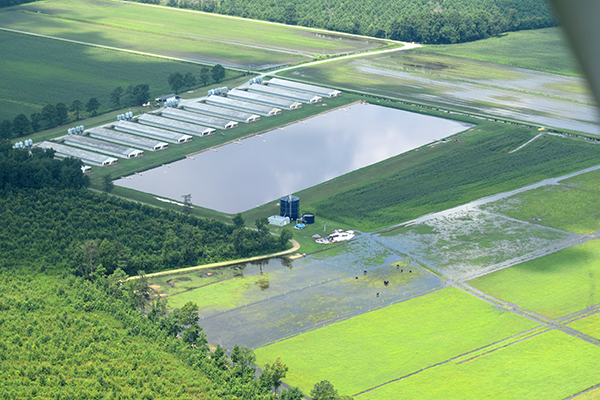
Pamlico-Tar Riverkeeper Jill Howell spoke on behalf of Sound Rivers at a special meeting of North Carolina’s Environmental Justice and Equity Advisory Board this week. The listening session of the special meeting centered on how biogas relies on and further entrenches the lagoon and sprayfield system, a system we know causes a number of harms, including water-quality impacts both from sprayfield runoff and breaching/flooding lagoons.
Jill’s comments were made from the following statement:
“The expansion and installation of anaerobic digesters to capture and create biogas relies on the lagoon and sprayfield system, a system that we know causes water-quality impacts. Sprayfields, where liquid waste is piped from the lagoon to sprinklers on cropland, poses a runoff risk. We frequently see spraying occurring not just to fertilize fields, but on already saturated fields, so the next time it rains, all of that liquid waste, with its excessive nutrients and bacteria, gets washed into nearby waterways. Biogas does nothing to address runoff of the sprayfields – liquid waste will still need to be sprayed and the concentration of ammonia and phosphate has the potential to be greater.
The second major water-quality concern stemming from concentrated animal feeding operations (CAFOs) are lagoons themselves – holding millions of gallons of solid and liquid waste in a coastal plain where there are not only hurricanes, but heavy rain events dumping inches of rain throughout the year, and overtopping and breaching are a real concern. Last December, approximately 1 million gallons of hog waste spilled into Tuckahoe Creek in Jones County from a lagoon breach on the DC Mills CAFO. Sampling by Sound Rivers showed E.coli levels were more than double downstream of the spill than upstream days after the event. The North Carolina Department of Environmental Quality had cited DC Mills, a Smithfield operation, twice in that year for high freeboard levels (waste levels above required). On the day of the spill, there was no hurricane, no major storm event, and over the previous two days there had been less than a quarter inch of rain. It was poor waste management and lagoon maintenance that eventually culminated in a major pollution event. Installation of an anaerobic digesters will not address or prevent these problems either. And while digesters have covers, there is still the need for open waste storage ponds, vulnerable to hurricane flooding.”
Related News
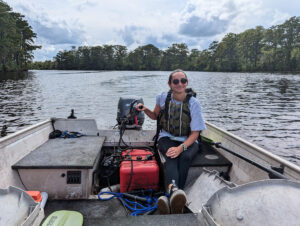
Riverkeeper monitoring Tar-Pamlico Water Trail
July 25th 2024

Rain ramps up trash-trap cleanouts
July 25th 2024

Riverkeeper, intern take on emergency trash trap cleanout
July 25th 2024

Tar-Pam Riverkeeper investigates Cub Creek turbidity
July 25th 2024
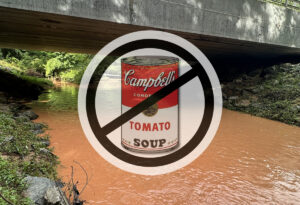
Heavy rains lead to sky-high turbidity on Lick Creek
July 25th 2024
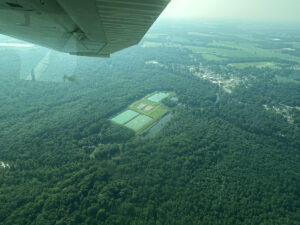
Riverkeeper: What goes up, must come down
July 18th 2024
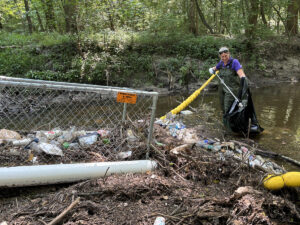
Greenville’s trash trap gets emergency cleanout
July 18th 2024

Sound Rivers gets close up of cyanobacteria
July 18th 2024

